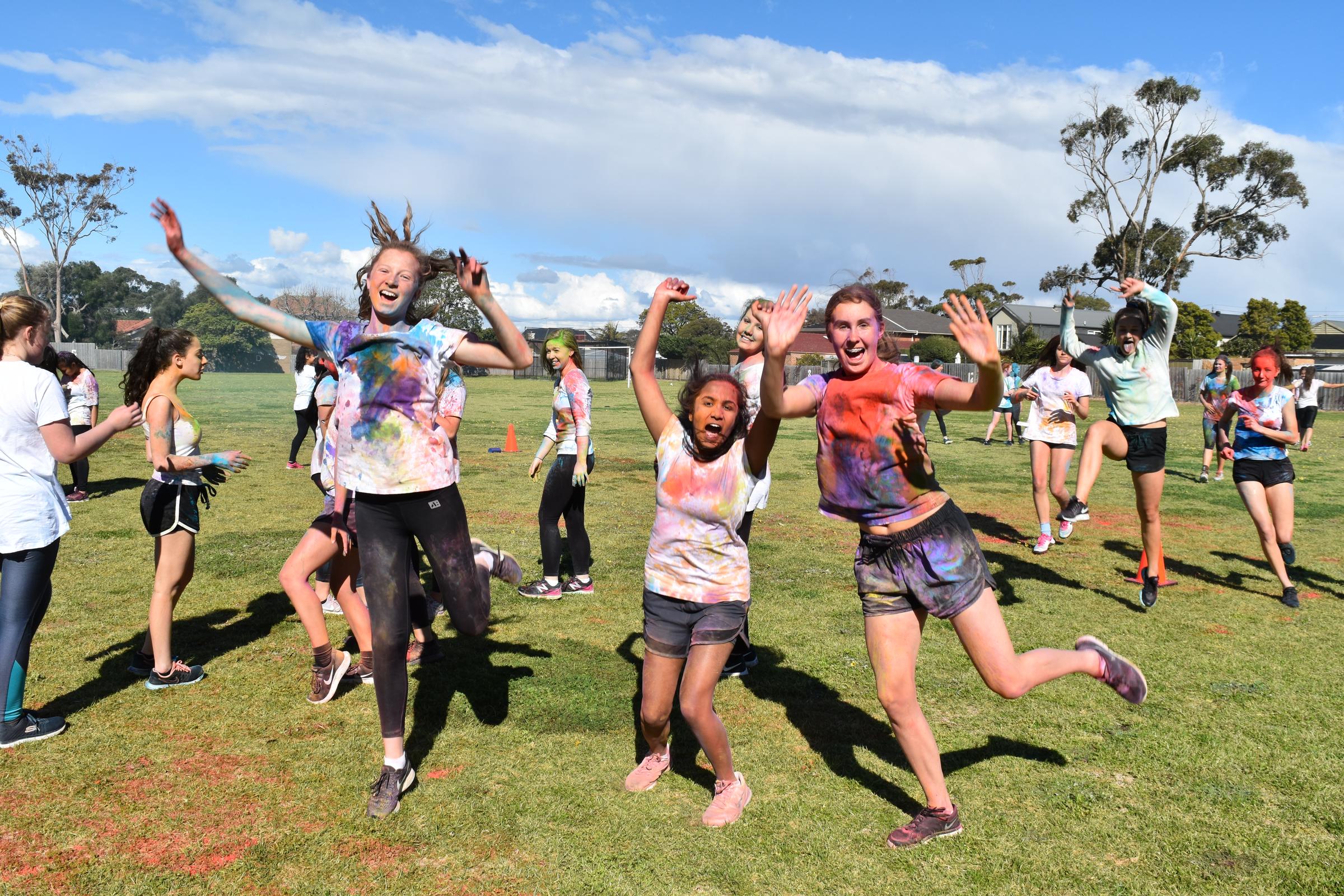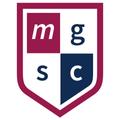Health and Physical Education

This learning area covers Health, Physical Education and Outdoor Education.
Core Health and Physical Education is compulsory.
Strand | Unit | |
Compulsory | Physical Education | Core Physical Education Core Health |
Elective | Physical Education | Healthy Minds, Healthy Habits |
Inside the Human Body | ||
Outdoor Education & Environment | ||
Sports Coaching | ||
Accelerated | Health Education | VCE Health and Human Development Unit 1 & 2 |
Physical Education | VCE Physical Education Unit 1 & 2 |
Year 10 Core Health & Physical Education
This unit is compulsory.
This unit aims to promote students' understanding of their personal health and their ability to relate to others to develop self-esteem and effective communication. Emphasis is placed on respectful relationships education. Students will continue to develop their individual skills through practical participation in physical education classes; greater emphasis is placed on team game tactics and umpiring.
Content
Students will participate in physical education classes and cover the following unit of work as part of health education: Respectful Relationships, self-esteem, and effective communication education
Assessment
Participation; preparation for class; skill level; fitness level; knowledge of game rules. Topic tests, research assignments, presentations, worksheets, and article reviews.
Healthy Minds, Healthy Habits
Aim
To increase awareness of students living in the 21st Century and the importance of learning how to look after themselves and each other.
Content
The elective includes investigating:
- Youth Health Issues – students research issues which affect women worldwide eg sexual exploitation, mental health issues, sexual identity; ovarian cancer
- Respectful Relationships - ‘Saying no to Violence’ – one in four females suffer from abuse. This topic looks at sexual, emotional and verbal abuse. It will cover communication, assertiveness skills and community agencies
- Skin care - covers the dangers of sun exposure and also how to care for your skin
- Sexuality – developing positive relationships, STIs and contraceptives, babies and teenage mothers.
- How to live to 100 and prevent lifestyle diseases eg: obesity, diabetes type 2 and cardiovascular disease. This unit will look at the role of physical activity, nutritional value of the foods we eat, body image and life/work balance This elective will involve lots of discussion, videos, activities and guest speakers.
Assessment
There are three Common Assessment Tasks for this subject; Letter to a Friend , Baby diary, Women’s Health Issue presentation. It is expected that all students take care of the virtual baby for two nights/three days or over a weekend
Inside the Human Body
Aim
To increase awareness of body structures and how they relate to the working body systems.
Content
- Anatomy – Study of the skeletal and muscular system, joints and tendons and the use of the body as a leverage system.
- Physiology – How the circulatory and respiratory system work and the effects of exercise on the circulatory system. Physiological effects of ergogenic aids. Study of the energy systems within the body and posture analysis.
Practical Component
- Laboratories – Practical application of theoretical knowledge.
- There will be approximately one lesson every week involving a practical class.
Assessment
There are three Common Assessment Tasks in this subject; Developing a Model of a Synovial Joint, Muscular System Test, Cardiovascular System Investigation.
Outdoor Education & Environment
Aim
To increase the awareness of the outdoors, Australian flora and fauna and indigonous land management strategies. This subject will explore how humans and their activities impact the environment.
Content
- Personal Outdoor Experiences – Study of the reasons people participate in the outdoor environment, including how technology has supported these interactions.
- Sustainable environments – Study of the different types of environments across Victoria and how humans can contribute to better levels of sustainability within and across environments.
- Indigenous Australian Land management strategies– native flora and fauna and exploring sustainable farming.
- Adventure activities – risk management and skill development.
Practical Component
Students will participate in a number of activities across the semester including a three day adventure camp, high ropes course, hiking, surfing, archery, rock climbing and field trips to study the native flora and fauna.
Assessment
There are three different common assessment tasks – Adventure Journal, Design a Camp and Environmental Investigation.
Please Note: This subject is a lead into the Unit 3 & 4 Outdoor & Environmental Studies course that can be completed in Year 11. There will be a cost involved with this subject of approximately $550.
Sport Coaching
This study area develops an understanding of how to coach a sporting team, awareness of different coaching styles and techniques. It will incorporate the psychology of sport as well as the responsibility a coach has in terms of safety and injury prevention. Students will continue to develop skills and complete practical activities to create lifelong habits. This subject will have a large practical component. Each week the students will engage in approximately:
- Practical Session – Participation in activities including sessions at a local gym as well as participation in a variety of traditional sports such as netball and basketball.
- Laboratory session – These include coaching junior classes; Peer coaching; Wheelchair Sports Victoria incursion, Bayside Special Develop School and Primary School Coaching sessions
- Theory Session – as per the content below
Content
Sports Coaching
Focus on a number of aspects of good coaching techniques: planning training sessions; role of a coach, conditioning the athlete; communication; skill development; group management; sports safety. This will be applied to various subgroups including a local Primary School and the Bayside Special Development School and will address the issue of modifying sports for young children and those with disabilities.
Psychology
Focus on a number of aspects of mental training including arousal and relaxation, visualisation and mental rehearsal, motivation, goal setting, dealing with anxiety, developing a positive mental attitude and the psychological responses to sporting injuries. Practical Learning Experiences – These incorporate both the practical and laboratory sessions described above.
Assessment
Assessment will include practical participation in all activities, Planning and implementing a school-based coaching session. Plan and implement a coaching session for primary school students and students with special needs. Laboratory reports, semester tests and a sports injury project.
Year 10 students can elect to study Unit 1 & 2 of the following Health and Physical Education subjects. The 2023 VCE Curriculum Handbook has full details of the area of study and content of each unit.
VCE Health & Human Development
VCE Physical Education
